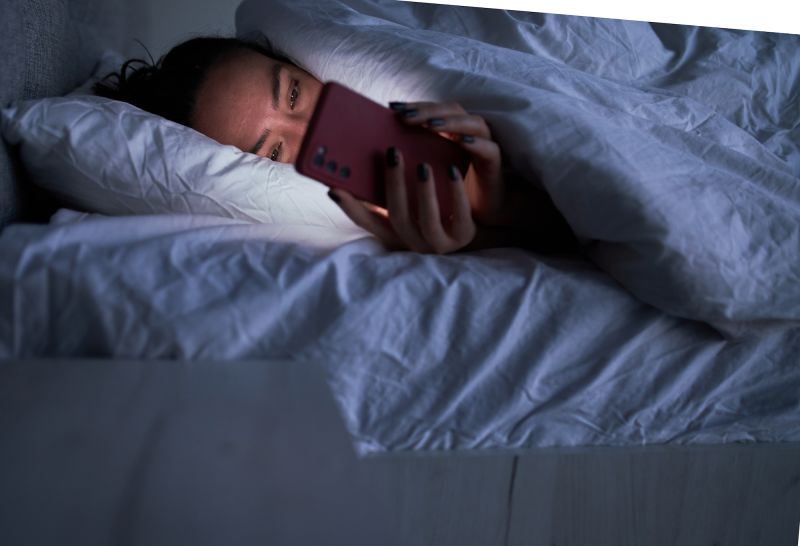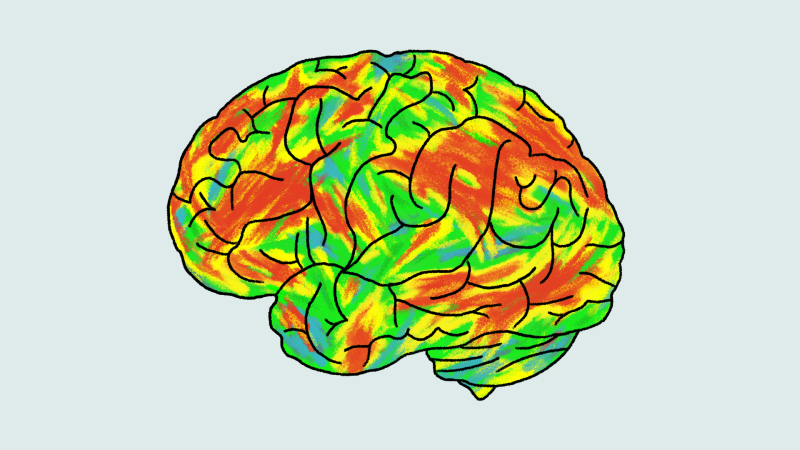One change I made to my social media use made a big difference on my mood

Editor’s Note: One Small Thing is a new series to help you take a simple step toward a healthy, impactful goal. Try this one thing and you’ll be heading in the right direction.
I was listening to the podcast “The TryPod,” when cohost Zach Kornfeld mentioned he had swapped checking his phone first thing in the morning for a game of pickleball. The switch had made his morning mood so much better, he said.
It seemed a passing comment, but it struck me. I had been waking up for a while with a sense of dread. Could stopping the morning scroll make a difference?
The next morning, I woke up and didn’t let myself open any of my apps until I had finished a walk with my dog.
And it worked. No dread feeling.
It worked the next day too, and not engaging with my phone first thing has worked since –– which makes sense, said Dr. Pamela Rutledge, director of the Media Psychology Research Center, an independent research organization based in Newport Beach, California.
Engaging in something in the real world (rather than the virtual) and feeling like you have power over your decisions can make a big difference, she said.
“You were then ready to start the day with some front-loaded positive emotions, which can translate into increased resilience, productivity, willingness to try new things and be more open to experiences,” Rutledge said. “It also makes you a lot nicer to be around.”
Cutting out social media and screen time altogether may be too much to ask. But little tweaks to how you use your phone –– such as not turning to it first thing in the morning –– can make a difference, experts said.
A jarring start to your day
Going from sleep to your face in the phone is a difficult way to wake up, said Dr. Charlotte Armitage, psychologist at Be Device Wise, a UK-based program designed to teach students to reduce their screen time.
Phones emit blue light, which has been linked to the release of the stress hormone cortisol, she said.
“Cortisol makes the heart beat faster and can result in feelings of anxiousness,” Armitage added.
Not only does the light predispose you for a greater feeling of anxiousness in the morning, but the content on the phone also has the potential to overwhelm you, Armitage said.
Bad news, online conflict or an influx of information takes a lot of energy and mental resources, which you don’t need to expend immediately upon waking up, she added.
And because social media algorithms are designed to hold your attention, negative content that grabs you will keep getting pushed to you, Armitage said.
“In the morning, when you haven’t fully adjusted to the day, that kind of content can start you off on a negative footing for the day,” she added. “You can feel lethargic and apathetic when spending too much time online early in a morning.”
You own your phone. It shouldn’t own you
Not all ways of using your phone will negatively affect you, Rutledge said.
“If it’s your alarm clock, so you’re checking the time or using your phone to check the weather, then it increases your sense of agency — you aren’t late and are dressed appropriately for the weather,” she said.
On the other hand, if you are getting sucked into email, social media or news, you are getting rolling before you’ve had a chance to plan your day mentally, Rutledge said.
“In doing so, you have jumped into the pressures of the day without taking the time to reflect on the day’s goals and demands and have lost the chance to be purposeful or ‘anchored,’” she added.
By starting the day without social media, you might also get a boost from increasing your sense of agency over the kinds of content you are consuming — rather than letting social media pull you into a mindless scroll, Rutledge said. Instead of just consuming the posts that are fed to you, can you seek out content that feels good?
“It’s important to be aware of how frequently you rely on social media to start your day,” Rutledge said, cautioning against “relying on a hit of adrenaline or dopamine to get you going at the cost of more reflection and planning.”
And since humans are socially wired animals, it can be difficult not to answer every call, text or notification you hear –– but it is essential that you are making choices around your usage, Rutledge said.
“We often forget that we own our phones, not the other way around,” she added.
Other changes you can make
Maybe you like the sound of staying away from social media in the morning, but you’re afraid you might give in to the fear of missing out when your phone lights up with notifications — what then?
Armitage recommends leaving your phone on airplane mode overnight and not checking it until you have started your day –– like once you have done school drop-off or gotten to work.
“Having the morning to focus on the real-world relationships around you rather than the online relationships might actually be beneficial for your feelings of connectedness,” she said in an email. “It also allows your body and mind to adjust to the day in a calm manner before dealing with daily life.”
Even after you have opened the screen-time floodgates for the day, it is important not to use social media when you should be paying attention to the people in front of you, such as your kids, partner, family and friends, Rutledge said.
And try not to use your phone within an hour of bedtime, Armitage said.
“Content that attracts your attention activates your brain, making it harder to fall asleep,” Rutledge added. “Good sleep hygiene says to step away from things that trigger your emotions and allow your brain and body to relax.”
You can also set boundaries for yourself when it comes to phone usage, Armitage added.
Try deleting apps from your home screen, putting them into harder to get to folders or turning your phone onto a disconnect mode so you don’t get alerts –– all of which can help you not get pulled in automatically, she said.
“By doing these things you are taking control of your phone rather than your phone controlling you,” Armitage added.







